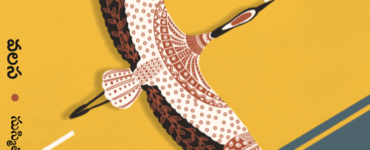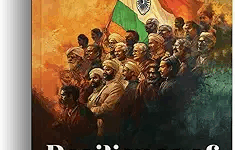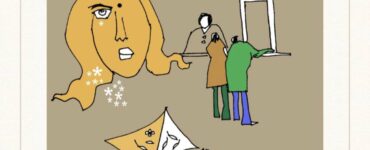 Translations take us to worlds known, unknown, little known, opening up new vistas and horizons. The cover of the book that I write about this month depicts a common scene, common sights that might be from any place in India but then that church and those tiled houses tell me that I am about to enter the world of Goa. I have never been to the place, have only heard about it and read about it. What better way to experience the place and the people than through these short stories by Damodar Mauzo.
Translations take us to worlds known, unknown, little known, opening up new vistas and horizons. The cover of the book that I write about this month depicts a common scene, common sights that might be from any place in India but then that church and those tiled houses tell me that I am about to enter the world of Goa. I have never been to the place, have only heard about it and read about it. What better way to experience the place and the people than through these short stories by Damodar Mauzo.
A prolific writer and a very important literary figure in Konkani literature, Mauzo’s work spans a large canvas. A Sahitya Akademi winner, the world of Mauzo’s stories lay before me the gamut of human emotions as they take me through journeys that linger on. “Teresa’s Man” reveals how the husband has an “indolent nature”, who loses it all and finally decides “I’m not going to remain quiet.” “Coinsanv’s Cattle” is a sad depiction of how a farmer and his wife need to make a difficult choice. A choice to send their animals to slaughter or face starvation – “When fending for three children and two adults was itself an overwhelming task, can one afford to be emotional about animals?” A story that reminds me of “Mahesh” by Sarat Chandra Chattopadhyay.
The fourteen stories in this collection bring in the rural and the urban, the lives of ordinary folk, of the joys and pains of life as it unfolds in the world around. There is humour too, for instance in “A Writer’s Tale” a senior writer, Manohar, becomes the subject of a woman writer’s fiction and has no idea about it. And the irony of it all lies in the fact that the senior writer had planned to write a story on the woman, Jayatha, as she had “excited his literary instincts”. The stories deal with various themes of poverty, women, human relationships and disability.
“From the Mouths of Babes,” the first story in the volume speaks about characters who live in the Gulf and of their lives there. The story is told from the perspective of Mithila, a young Goan woman who is trying to deal with the strictures of life and the way her husband reacts to her attempts at displays of affection. The story “Bandh” is set in the times of the language movement in Goa – “Today’s bandh is for everybody. It is for the sake of our mother tongue…” and reveals what people feel and the way they behave during such a bandh. Dattaram is warned by Caetan and Peter not to work but later they ask him to take Rosy to the temple – “ ‘I’ll do the job willingly, but not today! Tomorrow,’ said Dttaram, adding sarcastically, ‘today we are observing a bandh for the sake of our mother tongue, aren’t we?’” He finally gives in and agrees, only to run into trouble as a dozen men stop them and try to kidnap Rosy. “For a brief moment, Dattaram was tempted to leave. In the very next moment though, he saw Rosy’s mother on one side and Shantadurga, the goddess of Cuncolim, on the other.” Dattaram manages to escape with Rosy, rides to Caetan’s house and when he is asked as to what happened, all he says angrily is “‘This is our language! This is our culture!’”
Written across different time periods, the stories have a sense of nostalgia. A family preparing for Ganesh Chaturthi amid a looming crisis is what the story “The Vighnaharta” is about while “Happy Birthday” speaks of a child who has a problem learning. Translated with great felicity by Xavier Cota from the original Konkani, the translator’s note places the context of the stories that span a large time period, the stories were written over a period of four decades. That is the reason why some of the stories seem to hark back to a period when things were much different from the present times. In spite of this, the stories appeal, bringing to the fore human relationships, fears and hopes, happiness and moments of sadness as they delve into and present characters and situations that linger on.
Mauzo brings in a wonderful confluence of identity that is of typical of Goa. This confluence is seen in the stories in this collection. The stories have an elemental quality about them in the way they offer a slice of life in Goa, the living, throbbing life that reaches out and looks in as well. At a time when life is once again restricted and confined, the stories lay before me the charm of the place and people that always has had a special place in my imagination.
*









Add comment